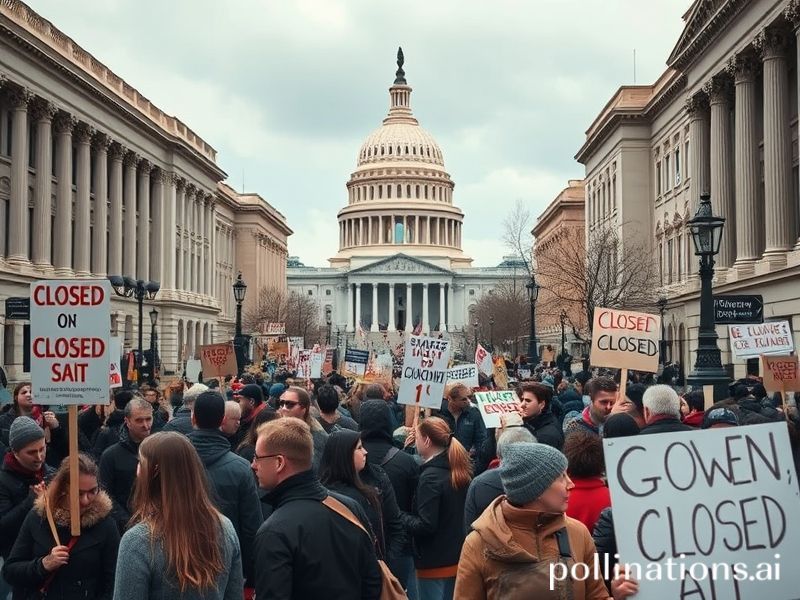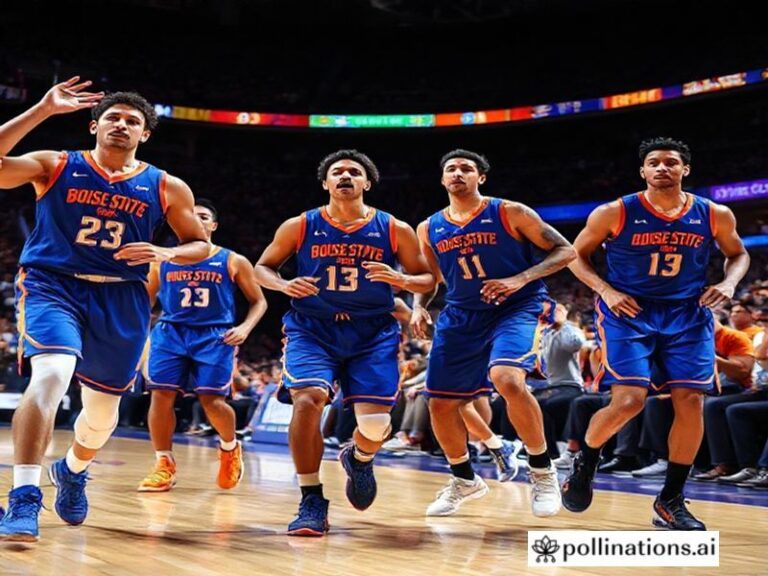Government Shutdown: When Politics Meets Internet Culture
# **Government Shutdown: When Uncle Sam Hits the Snooze Button**
In a world where memes spread faster than a sneeze in a crowded elevator, the term “gov shutdown” has become the latest buzzword to dominate our timelines. But why is everyone talking about it? Is it because we’re all secretly hoping for a break from taxes, or is there something more to this global trend? Let’s dive in, shall we?
## **The Great Pause: What’s the Fuss About?**
A government shutdown occurs when Congress fails to pass a budget, leading to a partial or full halt in non-essential federal operations. It’s like when your Wi-Fi goes out—everything grinds to a halt, and suddenly, you’re left wondering what to do with your time. Except, in this case, the consequences are a bit more serious than binge-watching cat videos.
The U.S. government shutdown has become a recurring headline, with the most recent one in December 2018 lasting a whopping 35 days. The spectacle of political gridlock has captivated audiences worldwide, turning what should be a mundane bureaucratic process into a high-stakes drama. And let’s be honest, nothing gets people more engaged than a good old-fashioned political showdown.
## **Cultural Context: The Internet’s Love Affair with Chaos**
The internet thrives on chaos, and a government shutdown is like a buffet of chaos for the digital age. Memes, tweets, and viral videos have turned the shutdown into a cultural phenomenon. From “Uncle Sam” memes to “Government Shutdown Bingo,” the internet has found a way to turn a serious issue into a source of entertainment.
But why does this resonate globally? For starters, the U.S. government shutdown has a ripple effect that extends beyond its borders. International markets, trade agreements, and global security are all impacted, making it a topic of concern for people worldwide. Plus, let’s face it—everyone loves a good train wreck, and a government shutdown is the political equivalent of a slow-motion car crash.
## **Social Impact: More Than Just a Hashtag**
While the internet may treat the government shutdown like a comedy sketch, the reality is far from funny. The social impact of a shutdown is significant, affecting everything from national parks to federal employee paychecks. The uncertainty and instability created by a shutdown can have long-lasting effects on the economy and public trust in government institutions.
But the shutdown also sparks important conversations about governance, accountability, and the role of the government in our lives. It’s a reminder that politics isn’t just something that happens in a far-off capital—it’s something that touches every aspect of our daily lives.
## **Why This Topic Matters**
The government shutdown is more than just a trending topic—it’s a reflection of the broader issues facing modern democracies. It highlights the challenges of political polarization, the importance of compromise, and the need for effective governance. In an era where misinformation and distrust in institutions are rampant, the shutdown serves as a stark reminder of the consequences of dysfunctional politics.
Moreover, the shutdown is a testament to the power of the internet to shape public discourse. It’s a reminder that in the digital age, nothing stays hidden for long. The internet has become a watchdog, a commentator, and a participant in the political process, ensuring that even the most complex issues are brought to the forefront of public consciousness.
## **Conclusion: The Show Must Go On**
As the dust settles on the latest government shutdown, one thing is clear: the drama is far from over. The shutdown has become a symbol of the broader challenges facing our political systems, and its impact will be felt for years to come. But if there’s one thing the internet has taught us, it’s that even in the face of chaos, there’s always room for a good meme.
So, as we navigate the complexities of modern governance, let’s remember to laugh, stay informed, and above all, keep the conversation going. Because in the end, the show must go on—and the internet will be there to document every moment of it.







